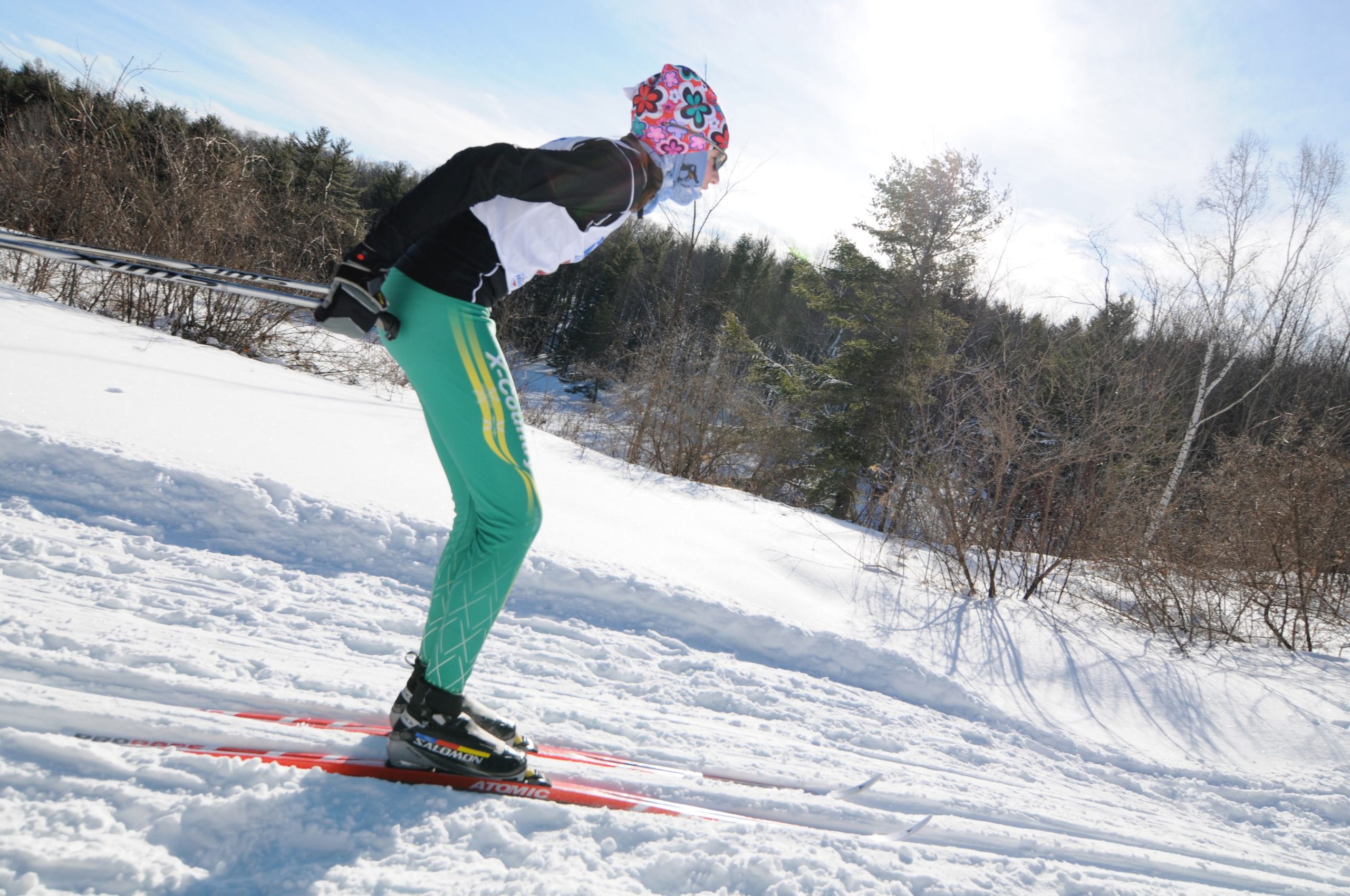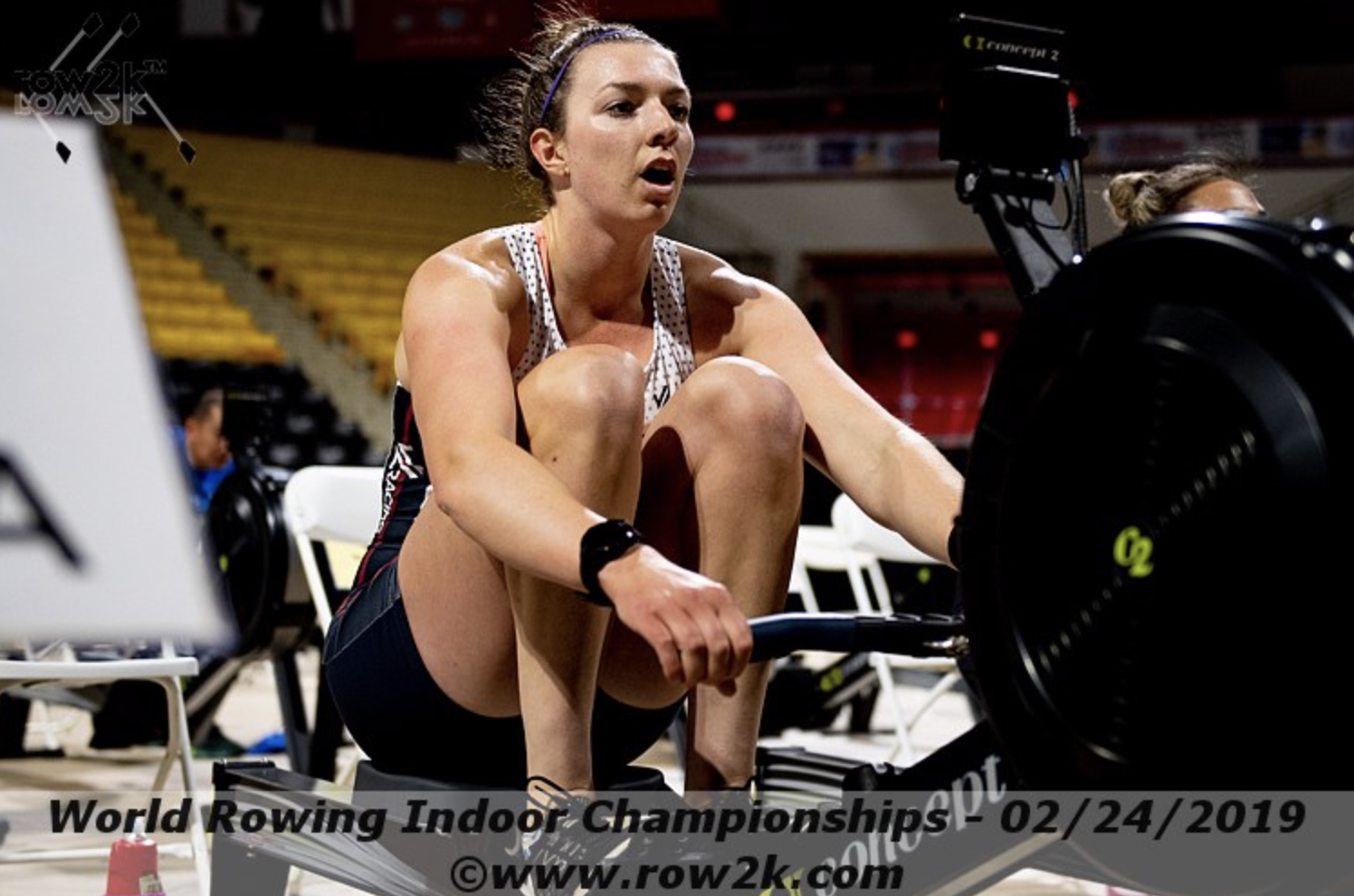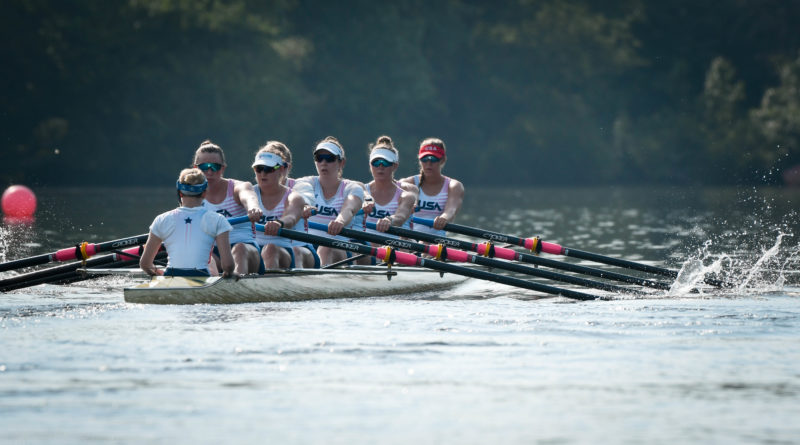How Peru’s Brooke Mooney Became Olympic Rowing’s Powerhouse
A record-breaking rower, Brooke Mooney learned the hard way how to push past pain.
Growing up in Peru, Vt. Brooke Mooney’s childhood wasn’t that different from that of many other Vermonters. “Pretty much everything we did, we did outside. We were all ‘active,’ before we became ‘athletes,’” she says. “In the winter, we’d go sledding and cross-country skiing and in the summer we’d play tennis, Ultimate Frisbee, and capture the flag with the neighborhood kids. My sister and brother and I were all pretty competitive, our parents even joined in for some games,” she recalls.
What was different though, was who those neighborhood kids were. In Peru, they happened to be the Caldwells (as in Isabel, Austin and their older sister, World Cup Nordic ski racer Sophie and their dad, SMS T2 coach Sverre) and the Ogdens (as in U.S. Ski Team Nordic ski racers Katherine and Ben). Many in that neighborhood gang would go on to race at the highest level. “Those Capture the Flag games got pretty intense,” Brooke says with a laugh.
Brooke, her elder sister Heather and younger brother Scott were also Nordic ski racers. Their mother, Tamra, worked in the promotions department for Skiing magazine. Their father, Jim, was the headmaster at Vermont Academy at the time. The kids would ski at recess and after school.
Heather qualified for Junior Nationals four times, Junior Worlds twice and U23 Worlds in 2016. As a freshman, Brooke enrolled at Stratton Mountain School and went on to podium four times at Junior Nationals.
But in her junior year of high school, things changed for Brooke. At a training camp at Craftsbury Outdoor Center head ski coach Pepa Miloucheva (herself a sculler) threw the sisters in sculls one day.
“I was in this four with Emily Dreissigacker and John Graves and one other – I forget who,” Brooke recalls. Dreissigacker, an Olympic biathlete, is the daughter of Concept2 founders and former Olympic rowers Dick Dreissigacker and Judy Geer. Graves, now a coach at Dartmouth, finished top 10 in the World Championships in 2013.
“I had no idea what I was doing but they helped me and I liked it,” Brooke remembers. “Pepa saw my athleticism and my strength and that I was a tall girl and I think she knew I would be a good rower,” Brooke remembers.
“I didn’t leave skiing because I didn’t like it. It was just that I wanted to try something else. Being a foot taller than everyone, if I kept on skiing who knows how I would have done,” says Brooke, who is 6’2”. “My build and my body are definitely more of a benefit in rowing than they are skiing.”
In the fall of 2013, for her senior year, Brooke transferred from Stratton Mountain School to Vermont Academy where coach and teacher Thom Collins recruited her to row. That year at VA, she played soccer and basketball but what she loved best was the feeling of the sculls moving beneath her in the quiet morning water on the Connecticut River. By the end of the year, she’d progressed to a point where she earned a spot on the University of Washington’s renowned D1 team.
There, in her freshman year, she was part of the varsity 2nd eight that took third place at the NCAAs. By the time she was a junior, she was in the 8-person varsity boat that won the NCAA Nationals.
“When she started to realize her true potential, she really embraced every opportunity,” her coach Yasmin Farooq told The Seattle Times in 2018. “We told her, you can pull way harder than you think you can. You don’t think you’re holding yourself back, but you are. You have to give yourself over to this and go harder and realize you’re not only going to survive but you can keep going at this level.”

Brooke’s ascent in rowing came at the same time as she was going for a major in medical anthropology and global health with minors in environmental health and nutrition.
And it came just as she began to experience excruciating headaches.
“I’d be able to maybe get through an early morning training session but that was it,” she recalls. But the pain was so bad she often had to lie down and couldn’t go to class. A CAT scan revealed that she had a cyst in her brain, pressuring her optic nerves. She waited until June after her team won the NCAAs to go in for endoscopic brain surgery.
By the time Brooke graduated from U. of Washington in 2018 with a degree in public health, she had already earned a spot on the U.S. Team. And she knew how to push herself beyond pain.
In sports like cross-country skiing and rowing, races are won by all-out exertion. It’s something Sverre Caldwell helped instill in his SMS T2 Team and something that cross-country star Jessie Diggins has labeled the “Pain Cave.”
Brook’s position in the Olympic eight is in the middle of the boat, “It’s the engine room,” she says. She is part of the de facto powerhouse that propels the boat forward and how fast and how hard she can pull can mean the difference between a medal or not.
In 2019, Brooke won silver in the U.S. Rowing Indoor National Championships, a test of her against the machine. That same year, she was part of the eight that won silver at the World Rowing Cup II and finished fourth in the four at the World Rowing Cup I.
Then 2020 and Covid came along and shut down competitions. “No one has been racing. We really had no idea going into the Olympics how we would compare to other teams,” Brooke said in a phone call from Hawaii where she was training just prior to heading to Tokyo. “Just no idea.”
What Brooke did know, though, was this: no woman in the world has ever recorded a faster time on an indoor erg for 2,000 meters.
On March 25, Brooke sat down on a Concept2 RowErg and began to pull. “I knew what the record was and in the back of my mind, I knew what I needed to do for the first half,” she says. “The beauty of rowing on an erg is you can see the numbers and stay fixated and motivated by them.” In 2017, at the University of Washington, Mooney had already impressed her coaches by breaking the school’s erg record with a 6:35 for the 2,000.
In Dec. 2020, she had pulled a 6:29.1 for the 2,000. On that day in March, she pulled the 2,000 meters in 6:21.1 —a new world record. To even her own surprise, after she got through the first 1,000 meters she kept gaining and in her final two 500 segments pulled 1:34.4 and 1:32.2 splits. “I had really only set a goal for myself for the first half of the piece and when I got there, I wasn’t seeing the numbers I had hoped for but then in the last third of the piece something just came over me and I thought, ‘if I really go, I can do this!’” And she did.

Still, if you ask her what her hardest workout has been, Brooke will tell you it was the Olympic selection tryouts in Princeton, where the U.S. Team had been training.
“We had about 10 days when we did pieces every single day, sometimes multiple pieces in a day – pulling your hardest, racing another boat. Then switching people out in the boats and going out again. It was go home, eat, sleep and then come back and do it again. I think we did like 20 pieces.”
Fueling for Brooke often meant trying to consume 3,000 to 5,000 calories a day. “Every morning I start with a bowl of oatmeal, peanut butter and a banana,” she says. The rest of the day is fueled with healthy snacks, protein and, whenever she can, her home-baked cookies. “I started baking cookies my senior year at U of W. Our coach was trying to get us to all log our workouts and I told my teammates if they all did that each week, I’d bake cookies.”
That sense of team spirit has carried on and when Brooke found out she was one of the finalists for the Olympic eight, she laughed, cried and hugged her teammates.
The team had fewer than eight weeks to prepare, working together in Princeton, then Hawaii, to train. But the U.S. women’s eight has won gold in the past three Olympics.
In Tokyo, the team moved up through the first two heats, winning the second heat in a back-and-forth battle with Romania, the only other nation to have three golds in the women’s eight. The win put the U.S. women directly into the A final where they would also meet New Zealand. In the final, the women faced stiff competition and in the last section of the race, managed to move up from fifth place, passing Australia to finish fourth, behind Canada, New Zealand and China.
Regardless of how the U.S. women’s team fared in the final on July 29, one thing was certain. When they got back home, Brooke Mooney would be baking cookies.

